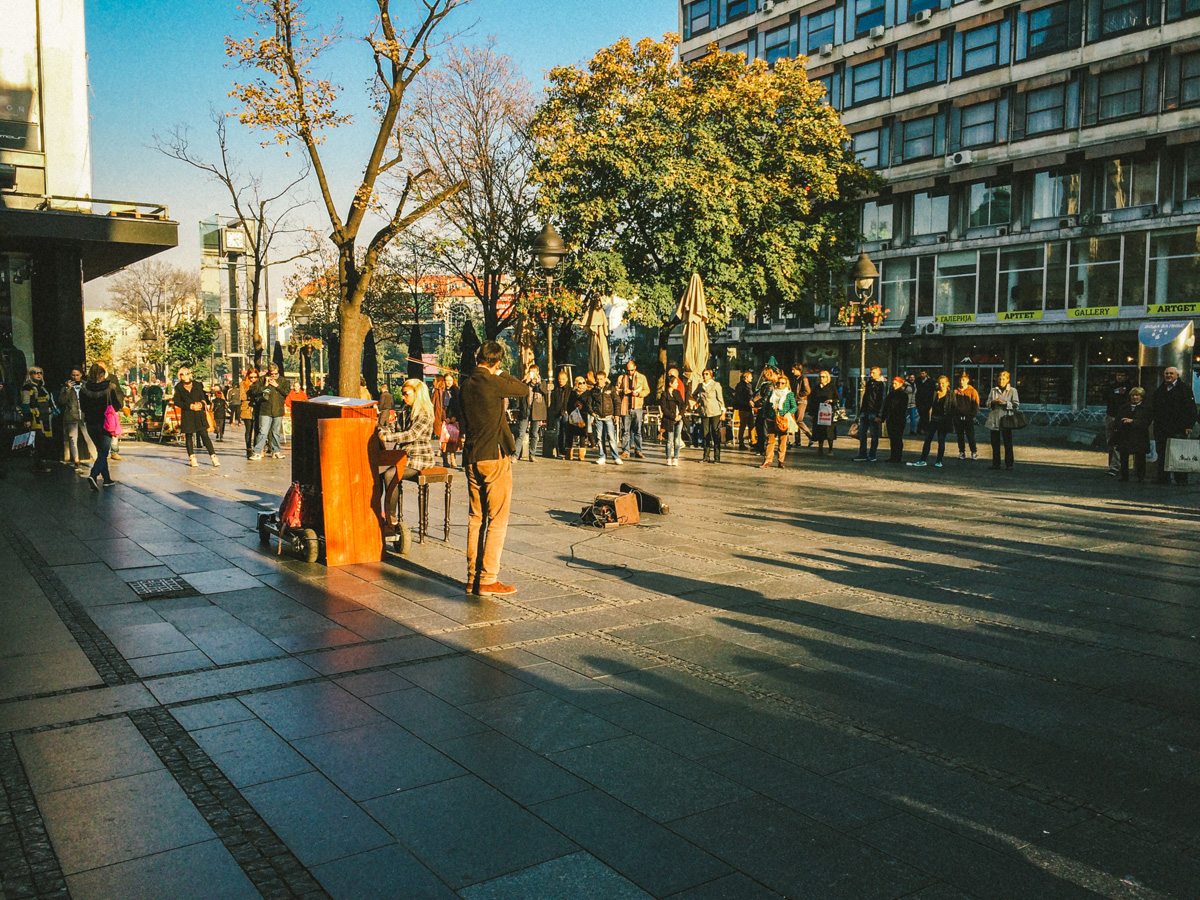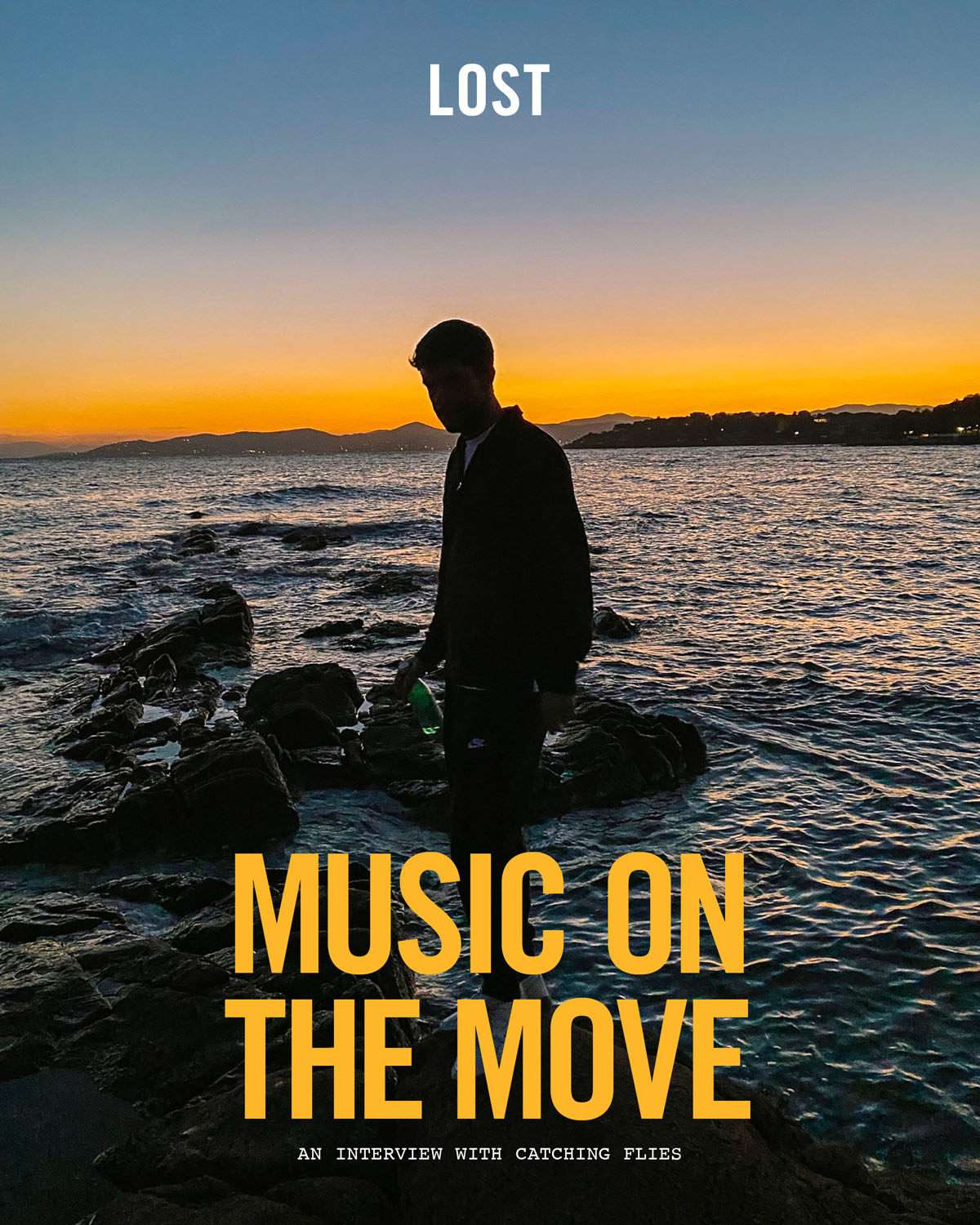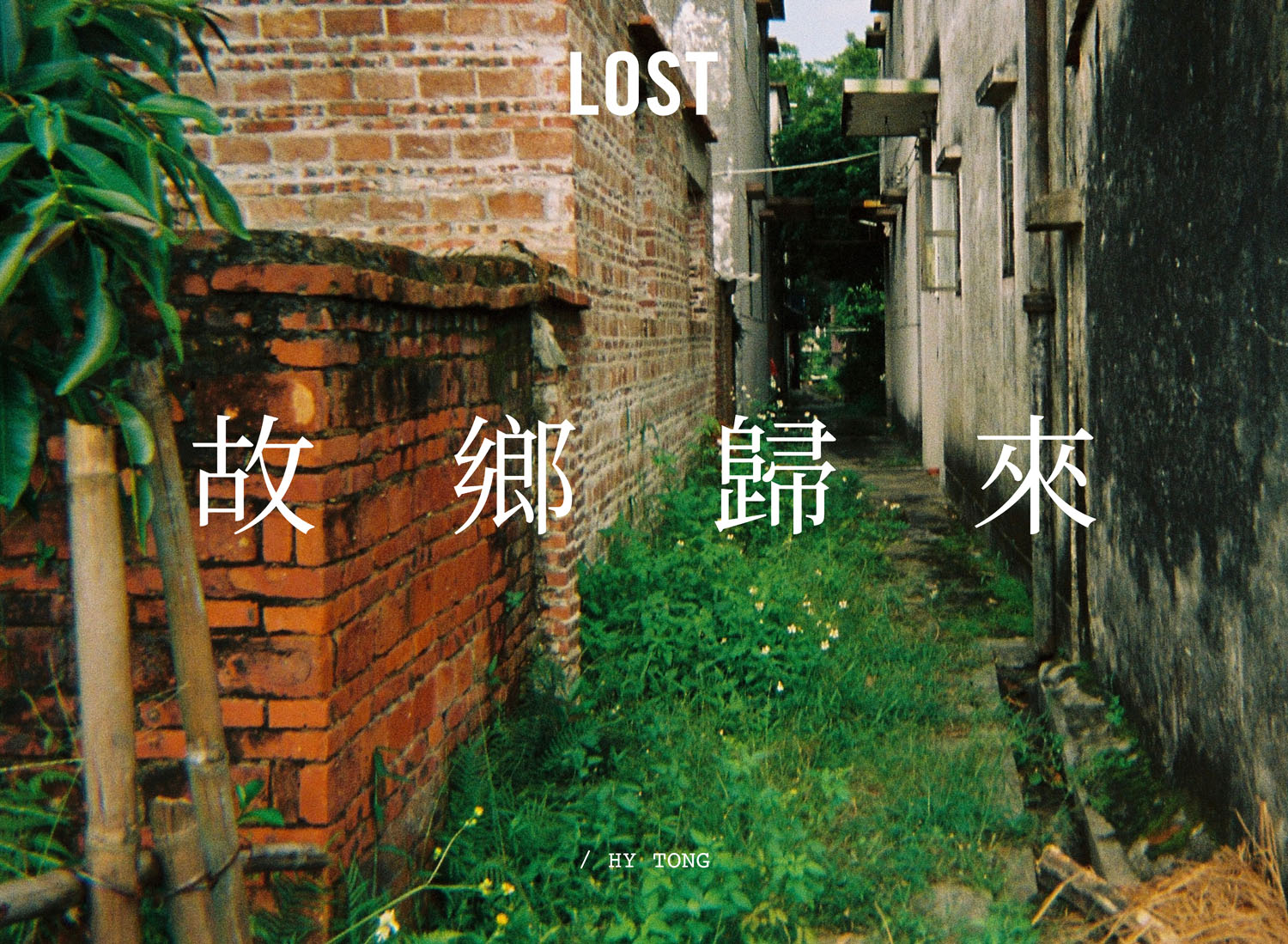BY JONATHAN ARLAN
Gabriel was not the first traveler I’d shared a meal with, but he’s the one I think of most often—the one my mind drifts back to whenever I find myself thinking of wandering away again.
I met him in Belgrade, the most charmingly moody city in the world. My friend Saša had seen him loitering around the train station festooned in the functional gear of backpacker’s everywhere—sturdy boots, rumpled pants, layered sweaters, a bulging pack about to burst. He looked cold and lost, she said, the way backpackers in the Balkan winter always looked. So she invited him, and then me, to lunch, telling me on the phone that I’d like him. “He is a traveler,” she said, “like you.” I’d like to say that my first instinct was not to roll my eyes just a little. But picturing a kid who had veered slightly off course on a tour of the big European cities, I bristled at the comparison almost as much as the description of myself as a “traveler.”
“He might need a place to stay and he can’t stay with me,” she added before hanging up.
The way I remember it, my first glimpse of Gabriel is from a distance: he’s pitched forward slightly, balancing the weight of his pack with a small forward hinge in his waist, his hands clutching the shoulder straps. Standing under the gloomy statue of Prince Mihailo, and hemmed in on all sides by Belgrade’s blend of dirt-brown soviet architecture and gently dilapidating Austro-Hungarian edifices, he doesn’t look lost—he looks like a child.
“This is Jon,” my friend said, introducing us. “He’s a traveler, too.”
“Gabriel,” he said, extending a hand. “Nice to meet you.”
“Nice to meet you, too. I’m not a traveler. I just like to travel.”
“What’s the difference?”
“I’m not sure. It sounds silly to call myself a traveler,” I said. “I just got on a plane and flew to Belgrade. Well, I took a train, actually. But you get what I mean.”
“But it’s what you do?”
“It’s what I’m doing at the moment. And I’m writing a book.”
“So, you are a traveler and a writer,” he said, and I couldn’t help but smile at the simplicity of this pronouncement. You are what you do.
“Are you hungry?” I asked.
On the way to a cevapi spot not far from my apartment, Gabriel gave me the broad strokes of what he was doing in Belgrade. This is what he said, very calmly, as if he were telling me his plans for a long weekend: he was traveling around the world. He had no contacts, no destination, no plan, no end-date, and no money. It was obvious he’d repeated the same few sentences many, many times already and was tired of doing so. But I was genuinely curious—even if I thought the idea of asking for money was slightly problematic. Still, I’d be lying if I said I wasn’t annoyed that I hadn’t thought of it myself. There was no denying it: this sounded like a real adventure.
So, over cheap cevapi and beer (my treat, of course) I asked him to start at the beginning.
It was simple, he said. He was traveling from his home in Paris, around the world, and back. He brought no money with him and would not spend any of his own money along the way. He carried a backpack with some clothes and that was it. He would rely entirely on the kindness of strangers along the way to feed, shelter, and transport him. He wasn’t concerned with how long it would take. “It will take as long as it takes,” he said. “I’m in no hurry.”
Paris to Belgrade—a two-hour flight—had taken two weeks, four border-crossings and at least two bewildering conversations with local police. Along the way he’d slept outside—on park benches, in railway stations, in the open country—for roughly half of the nights. The other half, he’d been taken in by people who were either sympathetic, curious, supportive, or some combination of all three. “It is changing my life already,” he said, though when I asked him how, he couldn’t quite find the words. “It’s difficult to explain at this point. But might we order more cevapi? And some fries?” he asked.
Back in Paris, Gabriel had just finished law school. He was sure he wanted to be a lawyer, but he wanted to do this first. To do what, exactly? To travel. To see places. To meet people. To open himself up to the world. To give something back in return. To give what? To move very, very slowly. I wondered aloud if he was he worried. Worried about what? Was his family worried? Probably, but maybe not. Where was he going? To Turkey, first, and after that, wherever the world takes him: Iran, India, China, Hong Kong, Australia. What about money? Do you really not have any? And what’s the point? Presumably, you’ll be using someone else’s money, eating someone else’s food. Why not just use your own money? I had a thousand questions, but I could tell he was running out of steam. And beyond basic logistics, he didn’t have many answers to give anyway.
“I know that many people do not understand,” he said, putting a wad of cevapi down. “But what is incredible is that, so far, so many people do. Like your friend. She does not require a long explanation. She doesn’t ask me questions. Some people simply understand, almost by instinct, and are happy to be a part of my journey. In this way, my journey becomes not only about me, but about all the different people I will meet. About connecting them. I love this idea. When I thought of it, I knew I would do it. It was one of those moments. Like, ah-ha.”
“When did you think of it?” I asked.
“Three weeks ago.”
I waited for Gabriel to ask if he could stay with me. I imagine he waited for me to offer. But I didn’t, and I’m still not sure why. Instead, I paid for the food and, when we went outside, I handed him all the cash I had in my wallet, a wad of Serbian money that could not have amounted to more than five dollars. Before I could consider what to do next, he shook my hand, said goodbye, and took off down the street back toward the city center, where the statue of Prince Mihailo pointed solemnly toward Istanbul. My friend and I watched him until he turned a corner and disappeared.
I’ve thought of Gabriel every so often for the last three years, sometimes fondly, other times with something like regret for not having been more generous, and still other times irritated at the thorny idea of having other people foot the bill for his adventure. At odd moments, though—while I’m driving in my car, or dreaming of other places, or just as I’m falling asleep—I’ve tried to guess where he might be, if he’s still traveling, who he is with, who he’s met along the way, what he’s seen, and if he’d be able now to tell me how his life has changed. But mostly, I return again and again to what he might have said if I’d asked him one more question: Could I come, too?
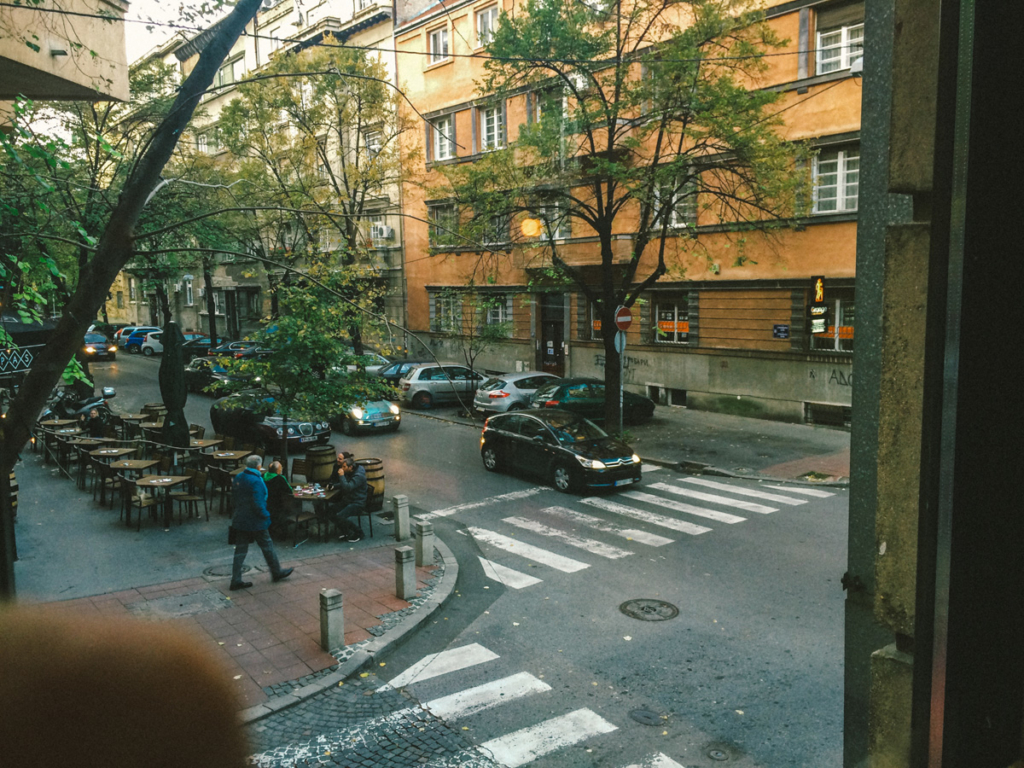
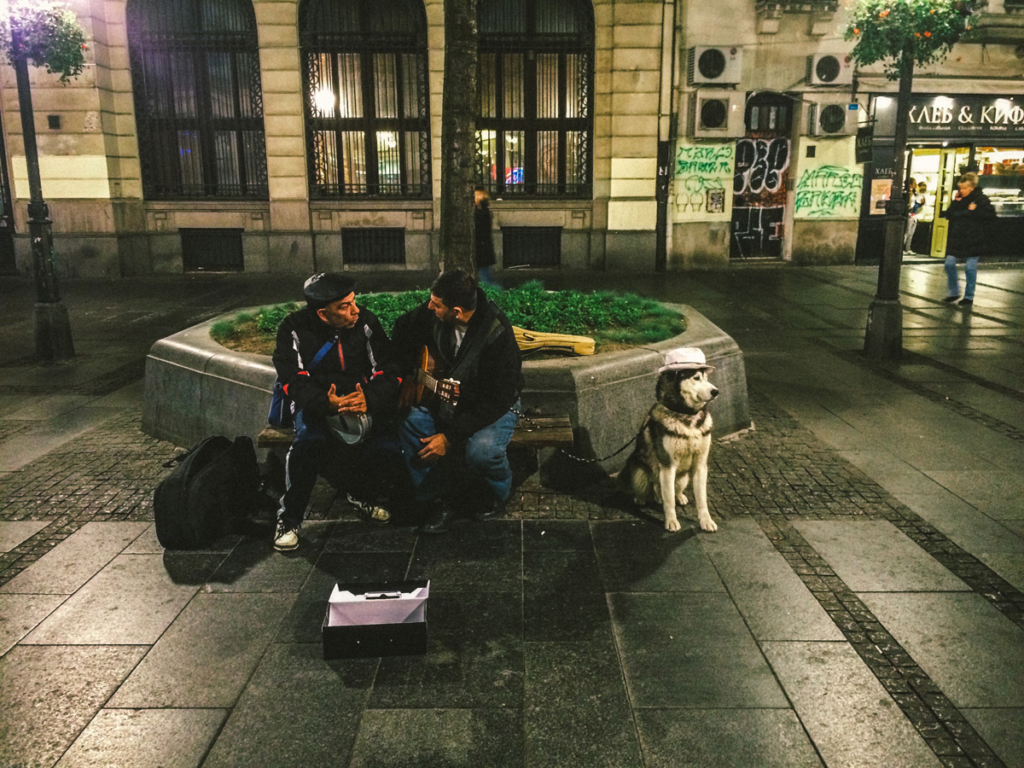
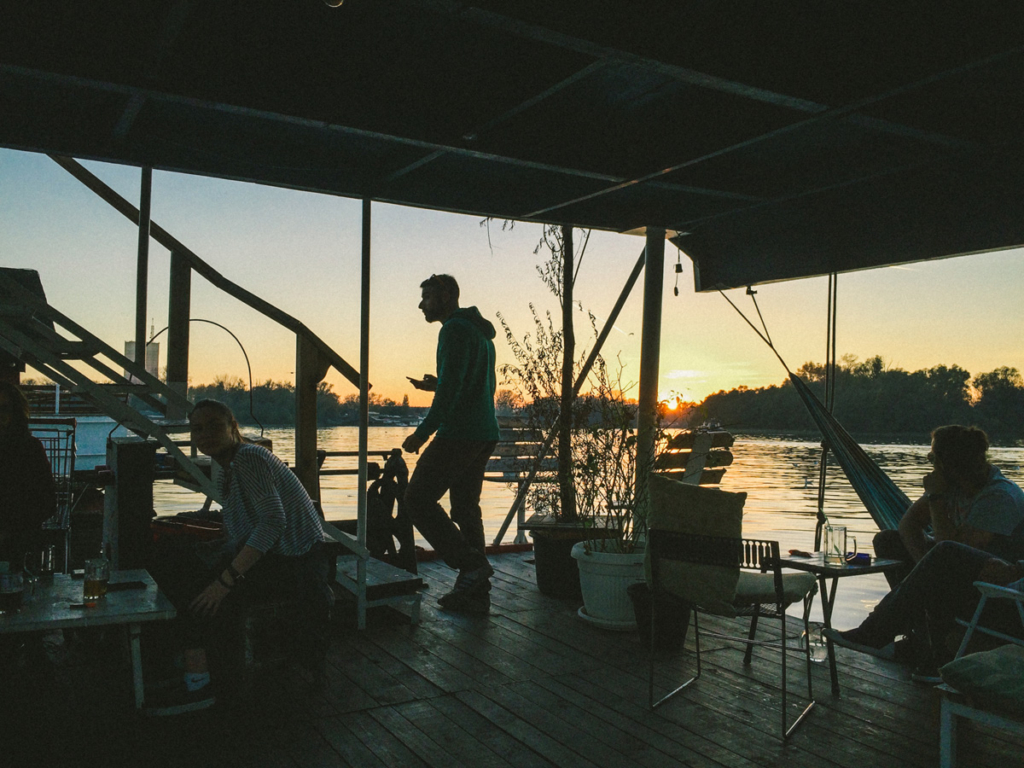
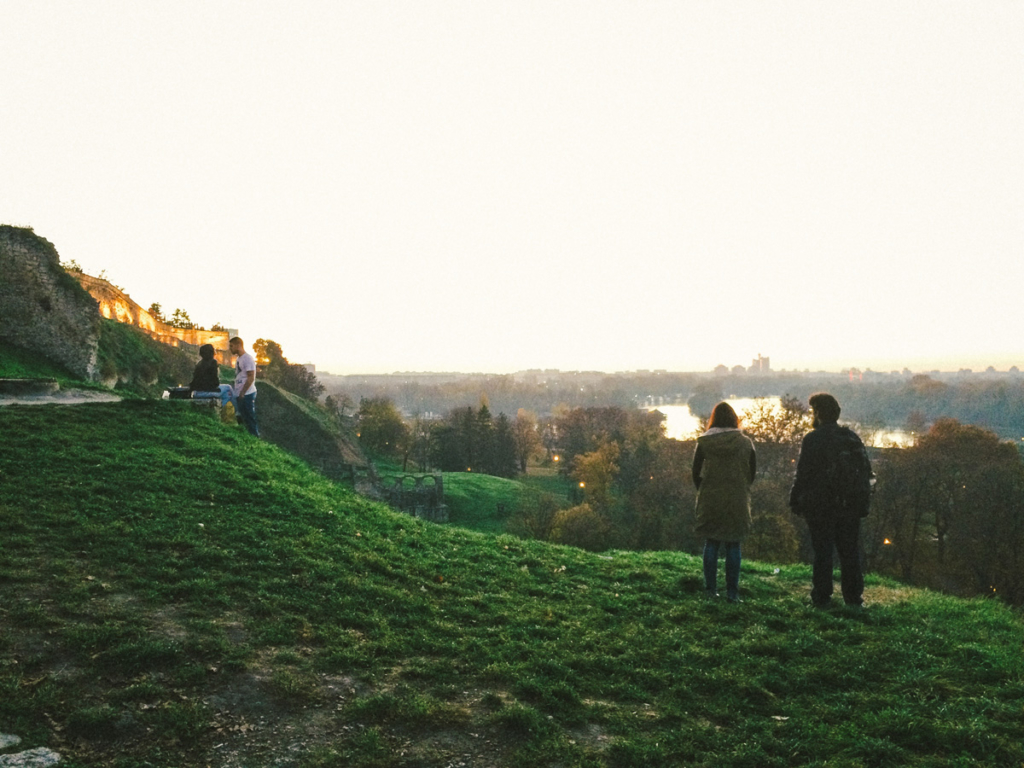
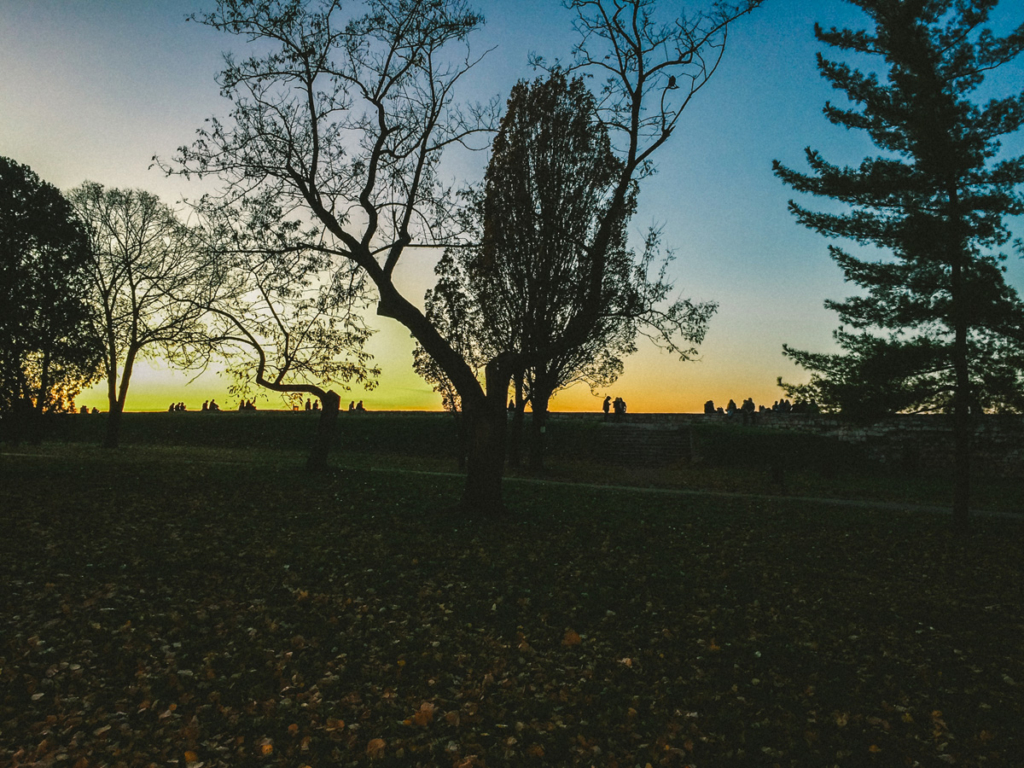
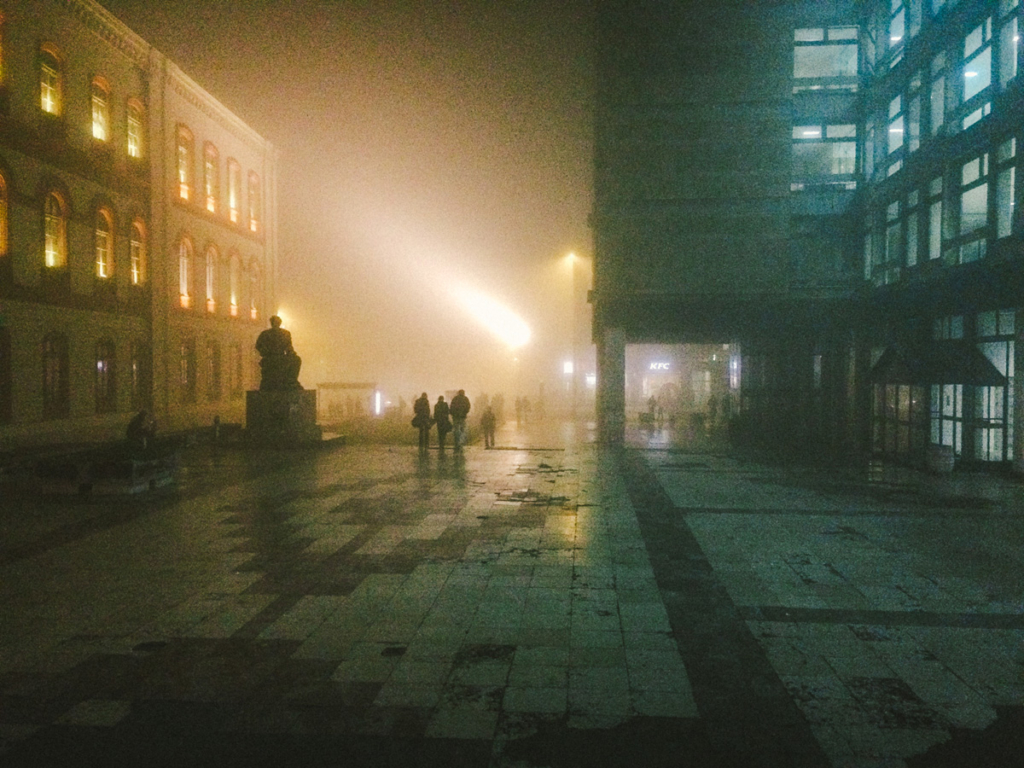
加百利不是第一個與我分享食物的遊客,但卻是我最常想起的一個——一個每當我想要再次流浪時會想起的人。
我在這個世界上最有迷人情調的城市貝爾格萊德遇到他。我的朋友薩沙發現他在車站徘徊,一身隨處可見的背包客裝備——戶外靴,皺巴巴的褲子,疊穿的毛衣,快要撐爆的登山包。他看起來冷漠又迷茫,她說,就像在巴爾幹半島冬天的背包客的樣子。於是她邀請了加百利和我一起午餐。在電話裏薩沙說我一定會喜歡他的。“他是一名旅行者,”她說,“像你一樣。”我得說這話聽完就想要狠狠翻個白眼。我想象著一個在周遊歐洲大城市的旅行中稍稍偏離常軌的孩子的樣子,心中一陣不爽,幾乎和被莎沙形容為一名“旅行者”同樣不爽了。
“他可能需要一個地方過夜,但不能與我住在一起。”掛電話前,她補了一句。
我記得自己在遠處遙遙地瞥了加百利第一眼:他身體稍稍前傾,以平衡背包的重量,腰間有一個搭扣,雙手抓住肩帶。他站在陰暗的米海洛王子雕像下,貝爾格萊臟兮兮的褐色蘇維埃建築群以及漸漸荒廢的奧匈帝國大廈從四周包圍著他,他不像是迷失了,他看起來像個孩子。
“這是瓊,”我的朋友說著,為我們作介紹。“他也是一個旅行者。”
“加百利,”他說,伸出一只手。“很高興見到你。”
“我也是。我並不是一名旅行者,我只是喜歡旅行。”
“這又有什麽分別?”
“我也不確定。自稱為旅行者聽上去很蠢,”我說。“我只是上了一架飛機,飛來貝爾格萊而已。好吧,實際上我是坐火車來的。但你明白我的意思。”
“你的意思是你所做的事情(決定了你是誰)?”
“是我目前正在做的事情。而我在寫一本書。”
“所以,你是一名旅行者和寫作者,”他說,我不得不對這結論的簡單微微一笑。你就是你所做的事。
“你餓了嗎?”我問。
我們去了我家附近一個吃切巴契契(一種流行於巴爾幹半島的肉食)的地方,路上加百利向我大致描述了他在貝爾格萊要做的事情。以下是他所言,十分平靜,好像在告訴我他的長周末計劃一樣:他在環遊世界。他沒有聯系人,沒有目的地,沒有計劃,沒有歸期,而且沒有錢。顯然他已經重復說過這同樣的幾句話很多很多遍,而且早就說累了。但我仍發自內心地感到好奇——雖然我認為要錢的想法有點問題。但是,要說我自己從沒想過這件事,那就是在撒謊了。我不否認:這聽起來像一個真實的冒險。於是,就著便宜的切巴契契和啤酒(當然,我請客),我請他從頭說起。
很簡單,他說。他從巴黎出發,環遊世界,然後回家。他身上沒帶錢,一路上也沒花自己的一分錢。他只背了一個雙肩包,帶了一些衣物,僅此而已。他完全依賴於沿途陌生人的善意,為他提供食物、住所以及交通。他並不擔心這會花很多時間。“該多久便多久,”他說。“我不趕時間。”
巴黎到貝爾格萊——2小時飛行航程——他花了兩周,四次跨越邊境,期間至少向當地警察繁瑣地解釋了兩次。這一路上,幾乎一半的夜裏他都露宿戶外——在公園長椅上,在地鐵車站,在開闊的鄉下。而另一半的夜晚,則被人收留,出於同情、好奇或支持,又或者三者兼有的原因。“這已經改變了我的生活,”他所,雖然當我問起如何改變,他一時找不到合適的措辭。“現在難以解釋。但是我們能再點一些切巴契契嗎?還有炸薯條?”他說。
在巴黎老家,加百利已經結束了律師課程。他確定自己想當一名律師,但是首先他想先做這件事。到底是哪件事?旅行。看不同的地方。遇見不同的人。向世界敞開自己。並給予回報。回報什麽呢?十分、十分緩慢地前進。我大聲問他是否擔心。擔心什麽?他的家人擔心嗎?也許吧,也許不。他要去哪裏?首先,去土耳其,在那之後,隨便世界帶他去哪:伊朗,印度,中國,香港,澳大利亞。錢呢?你真的一點都沒有嗎?這麽做有何意義?多半,你會用別人的錢,吃別人的食物。為什麽不用你自己的錢?我有一千個問題,但我能看出他已經筋疲力盡。而且除了那些基本的運籌,他也給不出什麽別的答案了。
“我知道很多人不理解,”他說,放下一塊切巴契契。“但更叫我驚訝的是,目前為止,有很多人理解。比如你的朋友。她不求一個冗長的解釋。她不問我任何問題。有些人就是理解,幾乎只憑直覺,而且樂於成為我的旅程的一部分。這樣,我的旅行不僅僅關於我自己,更關乎我將遇到的所有不同的人。關於聯結他們。我喜歡這個想法。我一想到它,立馬就知道自己會去實踐。它是眾多啊-哈時刻中的一個。”
“你何時想到的?”我問到。
“三周前。”
我等著加百利問我,是否能住在我那裏。我想他會等我主動提出。但我沒有,而且我現在也不確定是為什麽。相反,我付了晚飯的錢,當我們走出餐館時,我給了他自己錢包裏所有的現金,一沓塞爾維亞鈔票,我目測不超過五美金。我還沒想到接下來要做什麽,他先握了我的手,告別,沿著大街走回市中心,那個有著米哈洛王子莊嚴指向伊斯坦布爾的雕像的地方。我和我的朋友望著他轉過街角,消失了。
過去三年來,我頻繁地回憶起加百利,有時欣喜,有時又帶著對自己當時不夠慷慨的懊悔,其他時候則仍對他要其他人為自己的冒險買單的行為而惱怒。雖然,很偶爾地,當我駕車出門,或者夢想著別處,或者又只是睡著的時候——我試著猜想他會在哪兒,是否仍在旅行,他和誰在一起,一路上遇見了誰,看到了什麽,他現在能否告訴我,他的生活如何被這趟旅程改變。但最多的時候,我一遍遍想他會如何回答我,如果我再問他一個問題:我能一起去嗎?
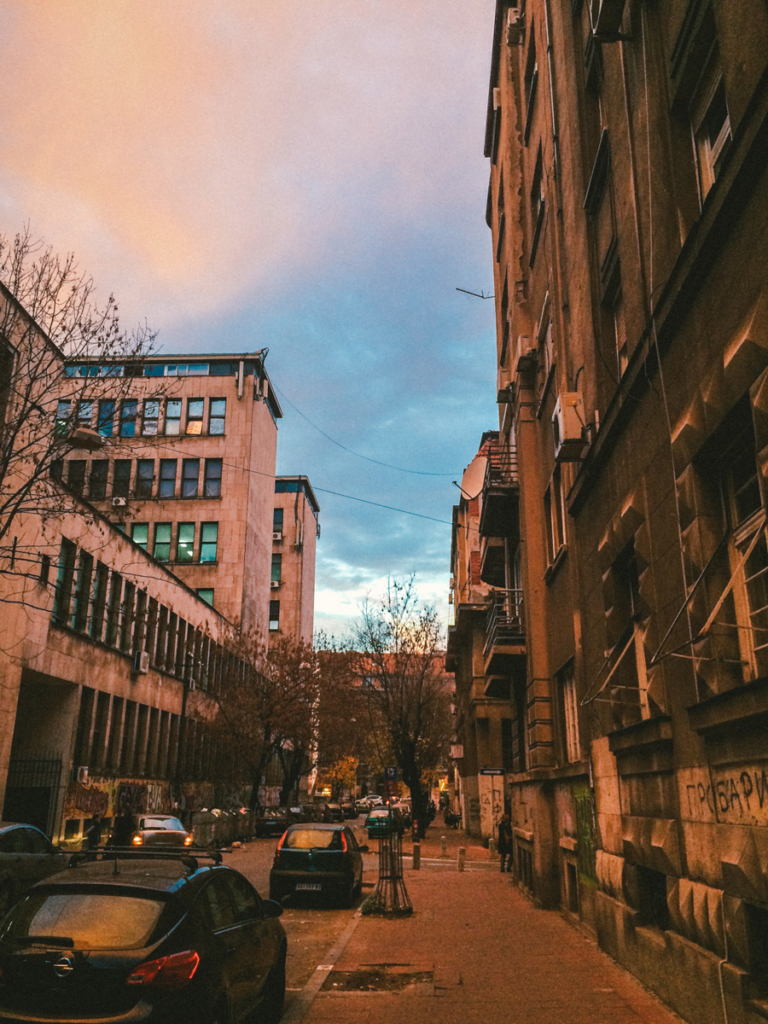
Jonathan Arlan is the author of Mountain Lines: A Journey through the French Alps, which the New York Times kindly called a “disarmingly engaging memoir by a millennial Kansan.” His writing has appeared in The Millions, Perceptive Travel, Adventure.com, and elsewhere. He is based in Kansas City and often on the road.
Jonathan Arlan 是 《Mountain Lines: A Journey through the French Alps》一書的作者,紐約時報雜誌贊許地稱其為 “一位千禧年堪薩斯人坦率的回憶錄。” 他的寫作曾刊載於 《The Millions》,《Perceptive Travel》,Adventure.com 以及 《elsewhere》。他住在堪薩斯城,但總是在路上。
www.jonathanarlan.com
